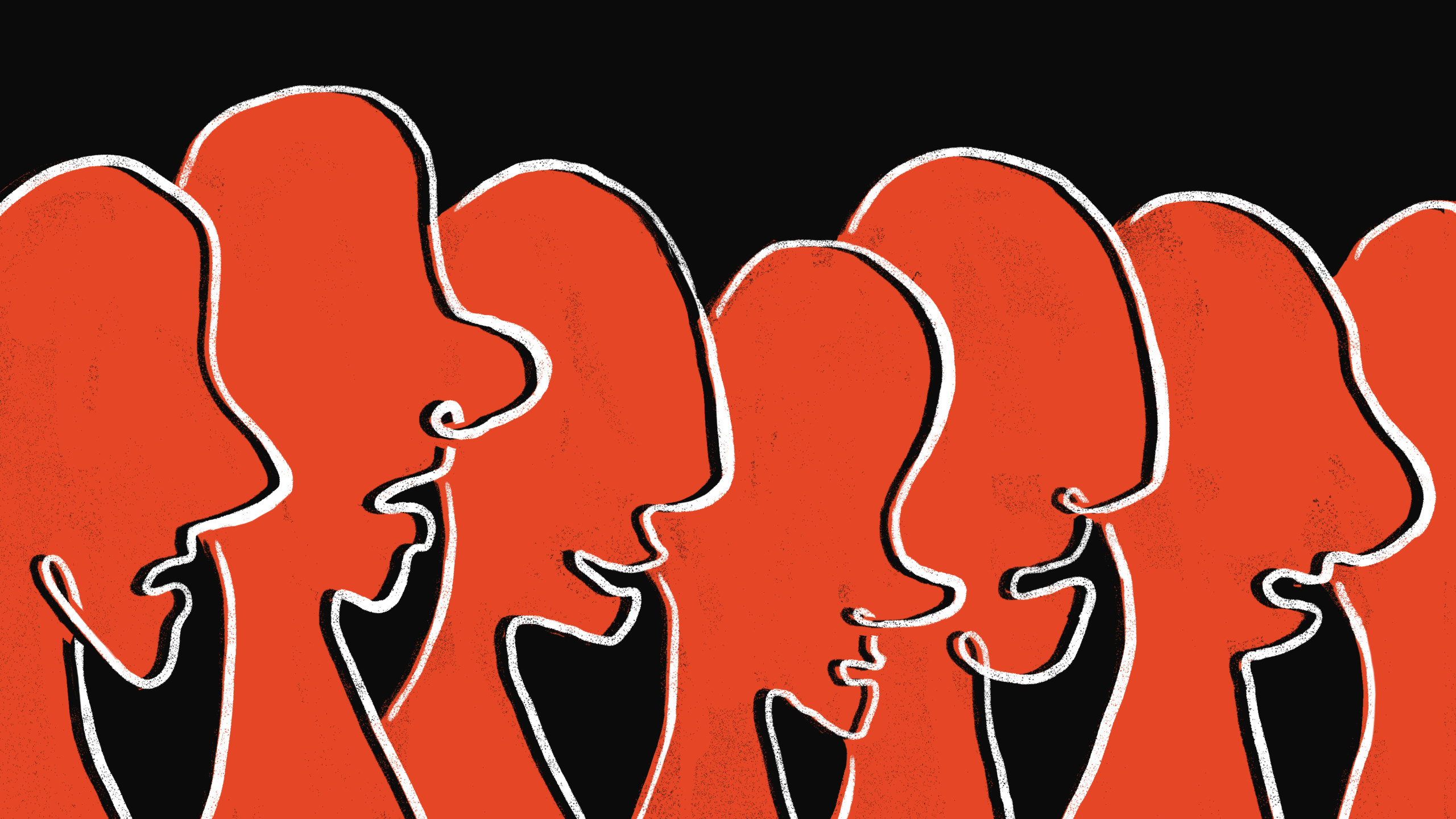Sydney Business Insights

Is business the answer to poverty alleviation?
It is hard to think of the poorest people in the world as an opportunity to do business, and of lifting them out of poverty as anything other than the domain of government or not-for-profit organisations. But what if there is a case for market-based mechanisms in alleviating poverty? Or is business indeed the answer to the alleviation of poverty? We talk to Associate Professor Ranjit Voola who advocates re-imagining the purpose of business, where there is both an economic and moral imperative for businesses to engage in alleviating poverty, whilst making profits.
Show notes and links for this episode
The business of helping the poor for profit
United Nation’s Sustainable Development Goals
Australian SDG Summit: On the Road to Implementation
Is ‘shared value’ corporate spin or a genuine game changer?
Example of menstrual cycle and poverty
Indian Startup creating sanitary pads out of banana
University of Sydney Business School searches for meaning and purpose
Poverty Alleviation and Profitability
CEMS Magazine 2014: The Sustainability Issue
You can subscribe to this podcast on iTunes, Spotify, Soundcloud, Stitcher, Libsyn, YouTube or wherever you get your podcasts. You can follow us online on Flipboard, Twitter, or on sbi.sydney.edu.au.
Sydney Business Insights is a University of Sydney Business School initiative aiming to provide the business community and public, including our students, alumni and partners with a deeper understanding of major issues and trends around the future of business.
Share
We believe in open and honest access to knowledge. We use a Creative Commons Attribution NoDerivatives licence for our articles and podcasts, so you can republish them for free, online or in print.
Transcript
Sandra Peter Introduction: It is hard to think of the poorest people in the world as an opportunity to do business, and of lifting them out of poverty as anything other than the domain of government or not-for-profit organisations. But what if there is a case for market-based mechanisms in alleviating poverty? Or is business indeed the answer to the alleviation of poverty?
Introduction: From the University of Sydney Business School, this is Sydney Business Insights, the podcast that explores the future of business.
Sandra: My name is Sandra Peter, and today we are talking to Associate Professor Ranjit Voola. Ranjit advocates re-imagining the purpose of business, where there is both an economic and moral imperative for businesses to engage in alleviating poverty, whilst making profits. He developed the unique subject in Australian business curriculum relating to how companies can implement this business strategy. He is the co-founder of the United Nations Foundation Social Good Summit Australia showcasing exemplars of this strategy within Australia. He believes that business managers who answer this question will be the leaders of the future - Where does my passion meet the world’s greatest need at a profit?
Welcome, Ranjit, thank you for talking to us today.
Ranjit: Thanks, Sandra.
Sandra: How can we engage with the poor as business, how can we think of business opportunities in this space?
Ranjit: I think there's been a real big question mark about what the purpose of business is. In the last 50 years people have been seeing it as more about making money and increasing shareholder value. But increasingly bodies like the United Nations and even business CEOs are actually questioning the assumption. So there is a bigger purpose to business apart from just making money and I think the bigger purpose is to do something for the societal benefit, as well as make profits. So, instead of seeing profits as the end, I would argue that profit is a means to an end and that end is societal benefit, such as innovating poverty.
Sandra: What was your motivation with getting engaged with poverty alleviation?
Ranjit: Well, both my parents are Christian missionary doctors back in India and when I was a kid they used to take me to all these camps where they were helping all these poor people so I've always wanted to do something about poverty. But as fate would have it, I started doing a business degree and PhD, and then luckily for me I think I did a business degree at the right time because people at the UN and people at the national government level increasingly started talking about what business can do to engage with poverty. I mean, if you look at poverty alleviation for the last however many years, the people who are at the forefront of trying to do something about poverty have been governments or non-profit organisations. Of course, they're doing a really great job but then I think we were fighting the poverty battle with one hand tied behind our back because business was left out of the equation.
So therefore I think I saw an opportunity for engaging in this debate about how we can question assumptions about what business can do, especially in the context of poverty alleviation. I think poverty alleviation is something that everybody can engage with, even for-profit businesses.
Sandra: I think we often take the definition of poverty for granted. Let's talk a little bit about what are our assumptions around poverty. What is poverty?
Ranjit: I think the easiest way that big bodies such as the UN have defined poverty is obviously based on income because it's easy to understand, easy to identify and capture. So, for example, extreme poverty is defined as people who are living less than US$1.25 a day. So that's absolute poverty definition. But that kind of definition doesn't actually work in developed countries such as Australia. In developed countries it's more like relative poverty so whoever is below the median is considered poor.
For example, in Australia the definition of poverty is obviously very important. But more recently people have started talking about the idea that poverty would also include lack of freedoms and capabilities. Even though people might have access to money, the big question is do they have the freedom to be who they want to be. For example, in one of my research in India about micro finance, I was asking this lady about what has micro finance done for her and she was basically saying well, you know, before I was home bound and now I have 10-15 goats so I'm an entrepreneur and I was like, aren't you really happy that you're making more money and that kind of stuff? And after a while I realised that she was not really keen to talk about the money part of it. What she actually wanted to talk more about was the fact that because of this opportunity she was able to go outside and talk to other people to do business. So that suggests that having money is an important part of poverty but also do they have freedoms to do what they want to do is an important aspect. So therefore it is absolute relative and lack of freedoms.
Sandra: If we think about engaging with this market, what does this market look like?
Ranjit: Well, if you take the income perspective there are seven billion people in the world. If you look at traditional business strategies, big companies and small companies, they've targeted the top three billion for obvious reasons, which is that they have money. But then the big question mark is what happened to the bottom four billion people? Are they all charity cases? I mean, all we can do with them is just give them money and, you know, there's no possibility of engaging in terms of doing business with them. So assumptions have been changing. The other big reason the companies are looking at this four billion is because the three billion people in the rich countries are saturated. I mean, there's only so much they can buy so where else can they go? But in order to engage ethically with this four billion it's really important that we rethink the business model.
So if you look at the three billion, it's basically low volume and high margins. But if you look at the four billion, we have to fundamentally change the way we think in the sense that it's high volume but very little margins. So that requires a huge change in how you target the market, what kind of strategies that you use, understanding consumer behaviour and that kind of stuff.
Sandra: Who’s really been at the forefront of these debates?
Ranjit: I think it's like a perfect storm at the moment because it's not only one part of the society saying we want business to engage in poverty. So you have the United Nations with their sustainable development goals, there are 17 of them and number one is ending poverty. One of the major things that they want to do in the next 15 years is to end extreme poverty or people living on less than $1.25 a day. But one of the key strategies that the UN wants to use is to include business sector in the strategy to reduce the poverty. So you have the UN talking about it, you have national governments. So, for example, Australian government in 2016 have actually fundamentally changed the trade policy, basically saying that we should be able to create shared value in the sense that it's using trade in terms of aid, so requesting big business to engage in aid by doing business with these poor people.
For example, there are various CEOs around the world who are championing this cause of business engaging in poverties. I think the most renowned CEO in this area is probably Unilever's CEO, Paul Polman. His whole strategy is revolved around SDGs (Sustainable Development Goals) and he keeps on talking about the fact that, you know, we should really question what we are doing in terms of business and, for example, there are about two million people, children, who die of diarrhoea for the simple reason that they don't wash their hands. So what did Unilever do through their soap called "Lifebuoy" is to actually teach these villagers how to wash hands. And that simple thing about washing hands actually has saved a lot of lives and at the same time they actually made money because they have to buy the soaps, it's no charity, you still have to buy the soap.
Apart from the CEOs, I think even consumers, they expect businesses to not just look at profits but what other stuff can they do to make the world a better place to live in. I've also noticed in my own teaching about poverty alleviation at the Business School that increasingly students actually would like to work for companies that are actively showing how they can make a difference, either to the environment or social issues such as poverty. So, in other words, there are huge parts of this society coming together with the attitude that, well, you know, we've been trying to do something with poverty for many years. Now is the time for businesses to basically engage with it because without business there is no capital and there is some incredible statistic like nine or 10 jobs are created by businesses. So how do poor people actually get alleviated from poverty by finding jobs? So if businesses are not engaged in it, there are nine jobs that are not there. As I said before, it's a perfect storm. Although it really does question fundamental assumptions of business for the last 40 years I think as a way forward.
Sandra: Why are some companies that have done this extremely well over that have been very successful at targeting the bottom four billion?
Ranjit: I think a very famous case study is in Kenya about a product called "M-Pesa". It's a joint venture between Safaricom and Vodafone. So, if you look at the world's population, there's an incredible 2.5 billion people in the world who do not have bank cards. Just not having a bank account has huge impact on poverty, which means basically if you don't have a banking card, where would you put your money? You would probably put it under a pillow or give it to your friends or something like that, which doesn't really help in understanding credit, debit, savings, and those kinds of things. So, what they did was they came up with a mobile phone that allows you basically to put a bank in the pocket. So, these poor people didn't have to basically sometimes travel for a day to go to the bank, they could just transfer money from their pocket, and it has had quite dramatic effects on the income levels of these poor people.
It actually also transformed the GDP of Kenya because so much transactions was happening through this. So, just by making sure that these many billions of people have access to bank in their pocket, it basically changed their lives in terms of poverty, that's one example. Another example is there are about a hundred million women in India who every month they have periods. So if you look at women, and poor women particularly, statistics have shown that they keep on missing about five days a month from school because they don't have money to buy proper sanitary pads. So, every time they have their periods every month, they just don't come to school or go to college or wherever they go. If you kind of take that in long term, they're missing five days every month, so over the years they miss a whole year of studies. So, what this entrepreneur has done is she came up with this idea of making cheap sanitary pads through the waist from bananas. She came up this machine, which she actually sells to the woman in the village itself because it's very difficult for a woman to engage with men in terms of buying sanitary pads. So, now the women have employment, they're selling it, as well as other women in the village can actually buy these products. So, what that has done is made them more confident to actually go to school and now they're not missing those five days. So, just by not missing that, they get educated, so in the long run they have a better chance of employment.
So both these examples of M-Pesa and sanitary pads is something you're selling to them but obviously there's the other side of the equation by actually employing them. Some of the biggest confectionery chocolate firms, like Nestle, they're using that so they'll realise that if you look at Africa or any of the developing countries, there are small-holder farmers and many of them and where does chocolate come from? From cocoa. It comes from plants. They realise that unless they really take care of all of these farmers as producers, maybe in the long-term their supply chain might be compromised. So, what they're actually doing in these villages is setting up education, setting up health care centres, to actually take care of all these farmers so in the long run, as producers, they'll be satisfied and give them their cocoa. So, I think there are various examples of how companies can engage the poor people as consumers and as producers.
Sandra: So what is Australia doing in this space?
Ranjit: Australia is a signatory to the sustainable development goals that were ratified in 2015. So, essentially the Australian government said we are part of this and we would like to reach some of the goals by 2030. So, the government is developing policies in order to that end. There's also the business compact Australia which is part of the UN. Its sole purpose is to engage to advocate for the sustainable development goals with businesses. I was actually recently at one of these conferences and I think there were about 36 CEOs of companies in Australia who have signed up to be part of this implementation of SDG goals.
The other thing that is happening in Australia is that we've basically extended what they were doing in New York, called the Social Good Summit. It is basically a one day conference that highlights people from different spheres - so, non-profit, for profit, and government - in the context of what they’re doing in poverty or environment or health.
For example, this year we had over 25 speakers, we had the CEO of Food Ladder, which is doing some amazing stuff in terms of food and poverty, and we had one of the senior managers from Pollinate Energy that looks at solar energy and poverty in the context of India. So we kind of bring all these champions of change in the context of sustainable development goals and highlight them. The basic purpose of that is to inspire others to do something similar.
Sandra: Ranjit, that sounds fantastic. What's next for you in this space?
Ranjit: In order to understand what's next probably look at what's been done in the recent past. So, I think one of the great initiatives that I've been privileged to engage with is to actually start teaching business students about poverty alleviation and the rule of business because it is actually challenging what they've been learning for many years, I guess. So here when we're talking about business and poverty, we're not talking about corporate social responsibility, we're talking about making money and alleviating poverty at the same time. So, seeing both times things is ambidextrous. It's really important to have students to be at least firstly aware that that's possible, and secondly to be passionate, to be able to go out there and change the world because you literally have to go change the world and change mindsets. So, in terms of teaching, I think at the moment the courses are very boutique, it's kind of catering to one program, but I think making it more mainstream, especially starting with undergraduate, might be really useful. And in terms of some of the research that we've been looking at, most of my research has been in India. Looking at...ok, so these are really poor people, right? And they've been used to getting, I guess, money from governments and non-profit organisations but now businesses are coming to them and saying that they want to help them and at the same time making money.
So, one of the things that we're trying to understand is what do these poor people think about that idea? Do they think it's ok for companies to come to them, sell them some stuff, and make money? That is a big question mark at this stage because there's a fine line between helping them and exploiting them. So I think it's really important that businesses get that thinking right in that context. In terms of outreach, I think because it's about changing mindsets, I think we need to have a powerful argument. So, for example, in Australia we've started the Social Good Summit, which showcases companies and organisations that are actually doing something about it, not just talking about it, in terms of leadership. So, I think the way forward as I said is to get more stakeholders involved. There are already, you know, enough CEOs. At the same time, there are enough sceptics too. So, I think it's really important to, you know, develop a very concrete, clear argument for why businesses should and must engage with social issues such as poverty because it makes good business sense, not because it makes good charity. I strongly believe that business leaders who answer the following question are going to be leaders of the future and the question is: Where does my passion meet the world's greatest need at a profit?
Sandra: That's fantastic, thank you so much for talking to us today.
Ranjit: Thank you very much, Sandra.
Outro: You've been listening to Sydney Business Insights. The University of Sydney Business School podcast about the future of business. You can subscribe to our podcast on iTunes, Soundcloud or wherever you get your podcasts and you can visit us at sbi.sydney.edu.au and hear our entire Podcast archives, read articles and watch video content that explore the future of business.
Close transcript







